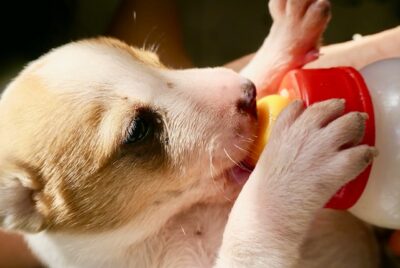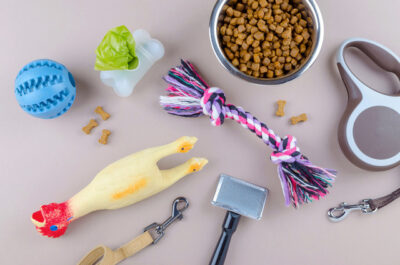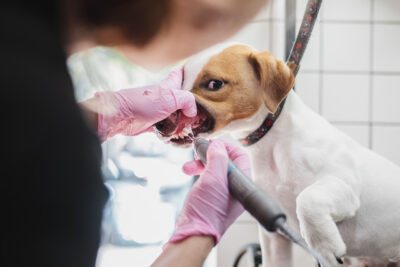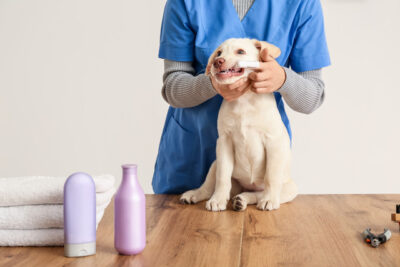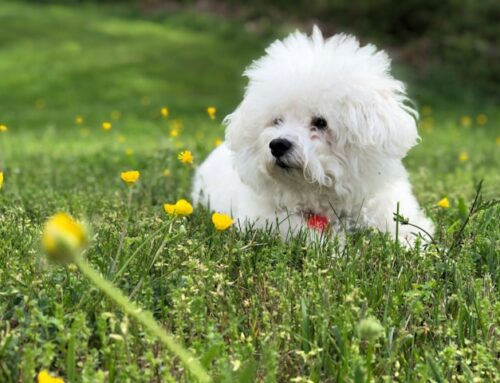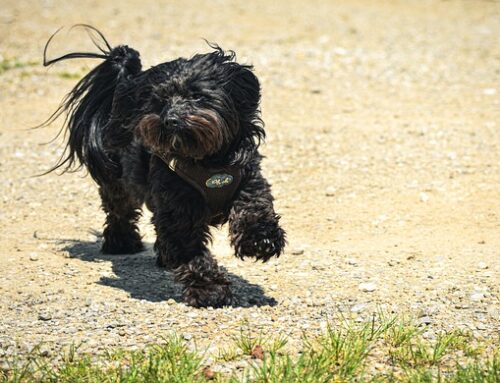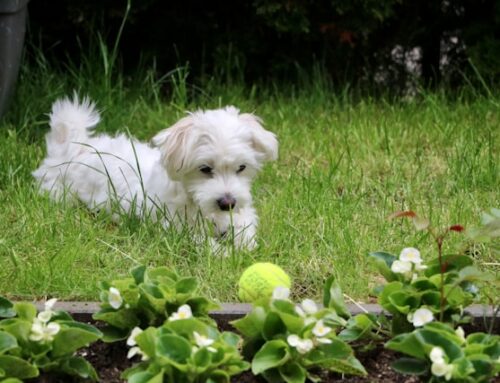Introduction: Do Puppies Lose Teeth?
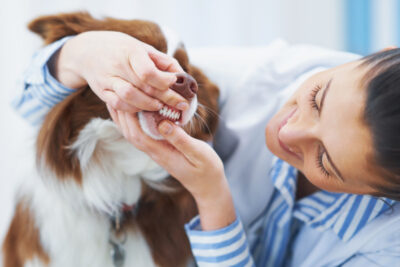
Puppies are undoubtedly adorable bundles of joy, but their journey from being born toothless to sporting a gleaming set of adult teeth is a fascinating one. In this comprehensive guide, we will delve into the intricacies of puppy teething, exploring the when, what, and how of this natural process. So, if you’re a proud pet parent or planning to welcome a new furry friend into your home, read on to understand the ins and outs of “Do Puppies Lose Teeth?”
The Curious Case of Puppy Teeth
Before we jump into the specifics of puppy teething, let’s address the curious case of puppy teeth. Just like human babies, puppies are born with a set of baby teeth, also known as deciduous teeth. These baby teeth serve a crucial role during the early stages of a puppy’s life, but they won’t stick around for long.
The Importance of Understanding Puppy Teething
Understanding puppy teething is essential for every pet owner. It helps you provide the right care and support during this stage of your puppy’s development. A smooth teething process ensures that your pup grows up to have strong, healthy adult teeth, reducing the risk of dental issues down the line.
Overview of Puppy Dental Development
Primary vs. Permanent Teeth
Puppy dental development involves two sets of teeth: primary and permanent. Baby teeth, or primary teeth, are the first to emerge. They lay the foundation for your puppy’s future dental health, despite being short-lived.
When Does Puppy Teething Start?
Puppy teething typically begins around three weeks of age and continues until they are six to eight months old. This process is divided into stages, each with its own set of challenges and characteristics.
Timeline of Puppy Tooth Loss
Puppies undergo a captivating journey of growth and development, and a significant milestone in this process is the shedding of their baby teeth. Much like human infants, puppies experience a teething phase as they make the transition from puppy teeth to their permanent set of adult teeth. During this fascinating period, puppies lose their baby teeth, including the canine teeth, as the puppy’s baby start making way for the emergence of sturdy adult teeth. Witnessing the process of puppy teeth falling out is a noteworthy aspect of their early development.
Detailed Timeline of When Do Puppies Lose Their Teeth
Incisors
The first set of baby teeth to fall out are usually the baby incisors. These are the small, front teeth that puppies use for grasping and nibbling. You may notice these teeth beginning to wiggle and eventually being replaced by their permanent counterparts.
Canines
Next in line are the canines, the slightly pointed teeth often associated with dogs’ sharp bites. Canines start to loosen and fall out as puppies grow, making way for their permanent canine teeth.
Premolars
Premolars are the flat-topped teeth found behind the canines, and they are essential for chewing and grinding food. Puppy premolars will gradually give way to adult premolars during this period.
Molars
Last but not least, the molars, the large, flat teeth at the back of the mouth, will also undergo a transition. Molars are crucial for efficient chewing, and as such, their development is a significant milestone for your growing puppy.
Factors Influencing Teething Speed
Now that we have a clear picture of the timeline of puppy tooth loss, it’s important to understand that the speed at which this process occurs can vary. Several factors influence how quickly or slowly a puppy’s teeth will transition, and these include:
Breed Variations
Different dog breeds may experience tooth loss at slightly different rates. Smaller breeds, like Yorkshire Terriers, tend to lose their baby teeth more quickly than larger breeds.
Individual Differences
Just as with humans, each puppy is unique. Some may go through the teething process faster than others, and there’s no need to worry as long as the overall timeline falls within the typical range.
Diet and Nutrition
A puppy’s diet plays a significant role in their dental health. Providing your puppy with a balanced diet that includes appropriate chew toys can help support healthy tooth development.
Teething is a natural and sometimes painful process for puppies, but it’s an essential part of their growth. As pet parents, it’s our responsibility to ensure they have the support they need during this phase. Proper dental care, such as using a dog toothbrush and offering safe chew toys, can go a long way in making the process more comfortable for your furry friend.
Signs and Symptoms of Puppy Teething: Puppy Teething Timeline
The phase of puppy teething poses challenges for both the puppy and the owner. Recognizing the signs and symptoms is crucial to offering the required care and support during this period. As puppies stop teething, providing comfort becomes essential, akin to caring for a teething baby.
Behavioral Changes
During teething, puppies may exhibit increased chewing and biting behavior. They might also become more irritable and prone to whining.
Physical Symptoms
Physical symptoms include drooling and excessive salivation, gum swelling, and redness. These are all normal reactions to the teething process.
Loss of Appetite
Puppies may experience a loss of appetite during teething due to the discomfort in their mouths. Common eating issues can arise during this phase.
Changes in Teeth Appearance
Keep an eye out for the shedding of baby teeth and the eruption of adult teeth. This is a significant milestone in the teething process.
Helping Your Puppy Through the Teething Process
As a responsible pet owner, it’s essential to understand the challenges your puppy faces during the teething process and how you can provide them with the support they need. Here are some additional tips and insights on coping with puppy teething while incorporating the provided keywords:
Choosing the Right Chew Toys
Selecting appropriate chew toys for your teething puppy is crucial. Opt for toys designed to soothe sore gums and aid in the shedding of the pup’s teeth. These toys should be safe and free from small parts that could pose a choking hazard.
Teething and Soft Puppy Food
During the teething phase, your puppy’s gums can become sensitive and sore. Consider switching to soft puppy food temporarily, as it’s gentler on their mouths and easier to chew. This adjustment can make mealtime more comfortable for your furry friend.
Dealing with Loose Teeth
It’s common for puppies to have loose teeth as their baby teeth prepare to make way for their permanent adult teeth. Don’t be alarmed if you find tiny teeth around your home or in your puppy’s mouth. It’s all part of the natural process.
The Role of Mother’s Milk
While puppies start weaning and transitioning to solid food, don’t underestimate the importance of mother’s milk in the early stages of life. It provides essential nutrients that support their growth and development, including their dental health.
Introducing Dental Care
Early introduction to dental care is vital for your puppy’s long-term oral health. Begin brushing your puppy’s teeth gently with a dog toothbrush, or a finger brush, and dog-friendly toothpaste. This habit will help them get used to dental care, keep puppies’ teeth clean, and prevent dental issues down the road.
Addressing Bad Breath
It’s not uncommon for teething puppies to have slightly unpleasant breath. However, if bad breath persists or worsens, consult your veterinarian. Persistent bad breath can sometimes be a sign of dental problems or other health issues.
Monitoring Teething Progress
Keep a close eye on your puppy’s teething progress. The timeline for tooth loss can vary, but if you notice any unusual delays or complications, don’t hesitate to seek guidance from a veterinary dentist.
Teething and Potty Training
Teething puppies may experience discomfort that affects their behavior, including potty training. Be patient and understanding during this time, as your puppy may need extra attention and encouragement.
Consultation with a Veterinarian
While most puppies go through the teething process without major issues, some may face challenges such as retained baby teeth or signs of periodontal disease. If you have concerns about your puppy’s dental health, consult a veterinarian for a thorough evaluation and guidance on appropriate treatment.
Choking Hazards and Puppy Teething
While providing chew toys is essential, it’s crucial to be aware of potential choking hazards and take preventive measures to keep your puppy safe.
Frequently Asked Questions (FAQs)
What is the significance of deciduous teeth in puppies?
- Deciduous teeth, also known as puppy’s baby teeth, serve as placeholders for a puppy’s permanent adult teeth. They play a crucial role in the early stages of a puppy’s development.
What is the significance of deciduous teeth in puppies?
- Deciduous teeth, also known as puppy’s baby teeth, serve as placeholders for a puppy’s permanent adult teeth. They play a crucial role in the early stages of a puppy’s development.
Do all puppies experience the same teething timeline?
- No, the timing of tooth loss can vary between individual puppies, but there is a general puppy teething timeline that most follow.
How can I recognize when my puppy’s permanent teeth start to emerge?
- You can identify the emergence of permanent adult teeth by observing changes in the appearance of your puppy’s mouth. Look for the presence of larger, more mature teeth replacing the smaller baby teeth.
Is it common for puppies to have retained baby teeth?
- Yes, some puppies may retain their baby teeth even as permanent adult teeth emerge. This condition can lead to dental issues and should be evaluated by a veterinary dentist.
What role does a dog toothbrush play in a puppy’s dental care routine?
- A dog toothbrush is a valuable tool for maintaining your puppy’s dental hygiene. Regular brushing helps prevent dental problems and ensures your puppy’s teeth are clean and healthy as they grow.
Are there specific signs of gum discomfort during teething, and how can I alleviate it?
- Signs of gum discomfort during teething include gum swelling and irritability. To alleviate this discomfort, offer safe chew toys and consider natural teething solutions.
When is it appropriate to introduce frozen toys to my teething puppy?
- Frozen toys can provide soothing relief for teething puppies. You can introduce them when your puppy is around eight weeks old, but always monitor their use to prevent any potential hazards.
Can teething puppies eat moist or soft puppy food exclusively?
- While soft puppy food can be more comfortable for teething puppies, it’s essential to ensure that they receive a balanced diet. Consult your veterinarian for guidance on dietary choices during teething.
How can I keep my puppy’s teeth clean during the teething process?
- Maintaining proper dental care is crucial. Brush your puppy’s teeth regularly with a dog toothbrush and toothpaste approved for dogs. This practice promotes good oral hygiene as they transition to adult teeth.
Are there specific concerns related to teething in Yorkshire Terriers or other small breeds?
- Small breeds like Yorkshire Terriers may experience teething differently than larger breeds. It’s essential to monitor their progress closely and provide appropriate care tailored to their needs.
Conclusion: Ensuring a Bright and Healthy Smile for Your Dog
In conclusion, gaining a comprehensive understanding of the intricate process of puppy teething is an essential aspect of responsible pet ownership. It’s a natural, albeit sometimes challenging, phase in your pup’s development that ultimately sets the stage for strong and healthy adult teeth.
As your puppy’s baby teeth make way for their permanent adult teeth, it’s crucial to monitor this transformation closely. The gradual replacement of baby teeth with adult teeth marks significant milestones in your puppy’s growth. This process, from the first baby teeth to the shedding of milk teeth, is a remarkable testament to your furry companion’s development.
Remember that each puppy’s teething experience is unique, and some may stop teething earlier than others. However, maintaining vigilance over your dog’s dental health remains crucial throughout their life. Ensuring that their adult teeth replace the baby teeth properly and monitoring any potential issues is the responsibility of all pet owners.
In the end, preparing for a healthy adult dog smile is not just a goal; it’s a commitment to your pet’s overall well-being. With the right knowledge, care, and dental hygiene practices, you can look forward to years of joyous moments and heartwarming smiles from your beloved canine companion.




